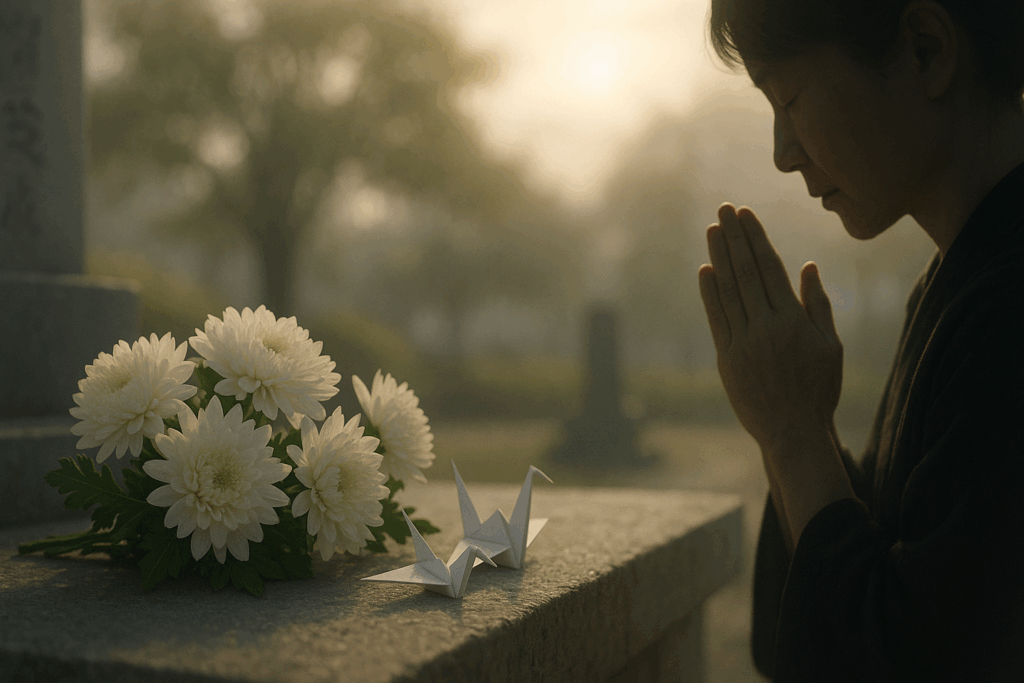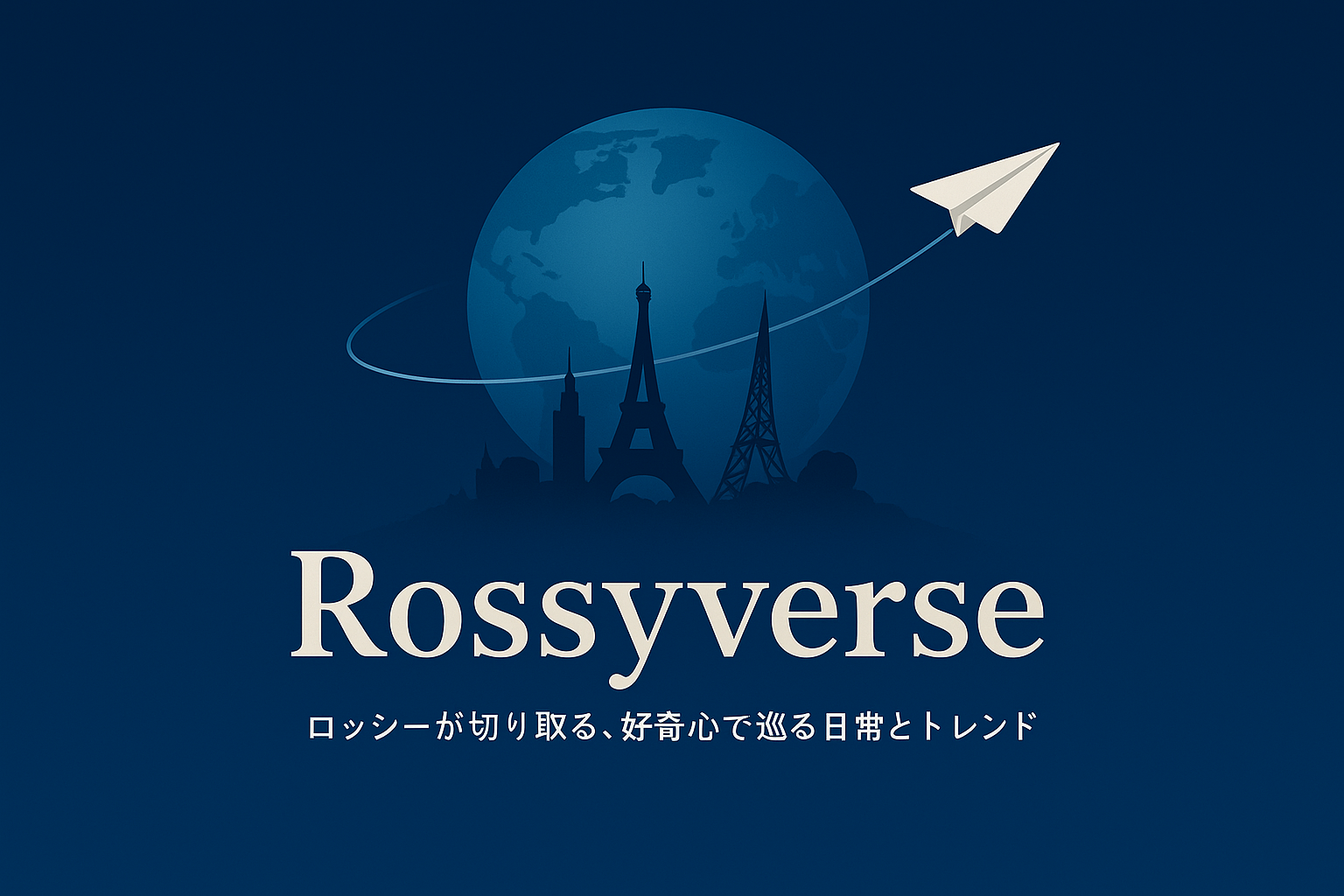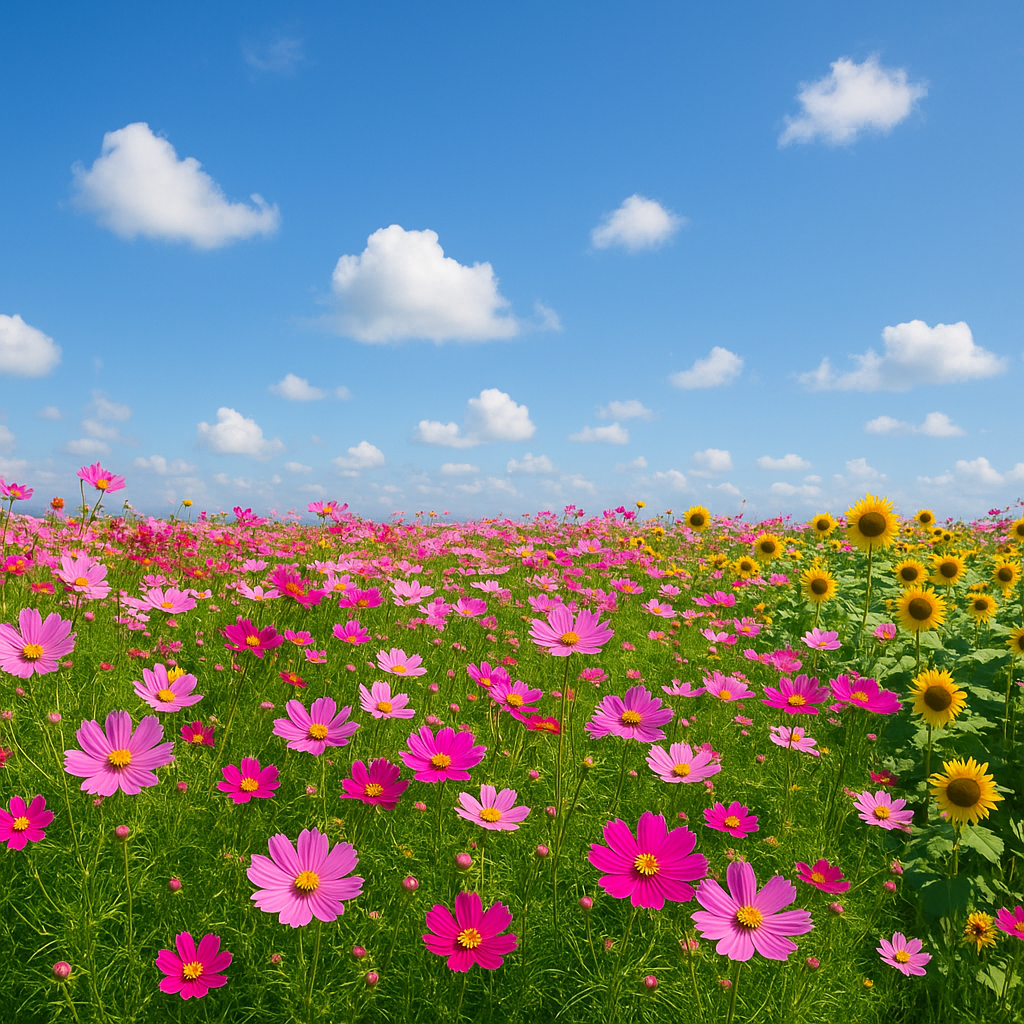1945年8月15日、日本はポツダム宣言を受諾し、第二次世界大戦を終結させました。あの日から、今年で80年。日本ではこの日を「戦没者を追悼し平和を祈念する日」と定め、毎年、日本武道館で全国戦没者追悼式が行われています。

式典では、天皇陛下が「戦争の惨禍が再び繰り返されないことを切に願う」と述べ、参列者は静かに頭を垂れます。戦争を直接知る世代が急速に少なくなる今、その時間は追悼であると同時に、記憶をつなぐための大切な“儀式”でもあります。
日本の戦争による犠牲は、推計で約三百十万人。軍人・軍属が約二百三十万人、市民が約八十万人とも言われます。空襲や原子爆弾の被害は甚大で、広島では推計十四万人、長崎では約七万人が亡くなりました。資料によって幅はあるにせよ、「数百万」という規模の喪失の前では、数字すら現実感を失います。ひとつの数字の背後に、名前のある人生と、その人を愛した家族の物語が確かに存在していたことを、忘れてはならないと思います。
私は高度経済成長期に生まれ、戦中の記憶は持ちません。それでも、祖父母の語りや、平和記念資料館の展示に触れるたび、胸の奥に冷たいものが走ります。焼け焦げた学用品、破れた衣服、日記の断片。そこに記されているのは「歴史」ではなく、確かに誰かが生きていた日常の続きです。教科書で知っていたはずの出来事が、具体的な匂いと温度を帯びて迫ってくる――その感覚を私は忘れません。
戦争を知らない世代が多数となった今こそ、私たちは問い直さなければなりません。なぜ戦争に至ったのか。なぜ止められなかったのか。なぜ多くの民間人が犠牲になったのか。そこには、恐怖や偏見、情報の操作、沈黙の同調といった、人間の弱さが必ず潜んでいます。歴史を学ぶというのは、過去の出来事を暗記することではなく、その弱さとどう向き合うかを考えることなのだと思います。
8月15日を「過去の記念日」として通り過ぎてしまうのは簡単です。しかし、記憶は手をかけなければ、砂のようにこぼれ落ちていきます。たとえば、身近な人の語りを録音して残す、地域の資料館を訪ねる、当時の手記を読む、子どもと一緒に黙祷の意味を話す――そんな小さな行動の積み重ねが、私たちの社会に“記憶の居場所”を増やしていくはずです。
平和は、抽象的な理想ではなく、具体的な実践の積み重ねです。異なる意見に耳を傾けること、偏りのない情報に触れる習慣を持つこと、排除ではなく対話を選ぶこと。国家の政策だけでなく、私たち一人ひとりのふるまいが、社会の空気をつくります。小さな言葉遣いの選択や、見知らぬ誰かへの思いやりこそが、暴力の芽を摘む最前線なのだと思います。
あの日から80年が過ぎたいま、私たちにできることは多くありません。しかし、忘れないこと、学び続けること、語り継ぐことは、確かにできます。歴史を直視することは痛みを伴いますが、その痛みを適切に抱え続けることが、未来の誰かの痛みを減らすことにつながると信じています。
8月15日は、終わりの日であると同時に、始まりの日でもあります。亡くなられた方々の無念に思いを致し、同じ過ちを繰り返さないと誓う日。そして、日々の暮らしの中で平和を選び取ると決め直す日。私たちが未来に対して負う責任は、けっして大仰なスローガンでは成しません。今日の言葉と行いの重さを自覚し、明日に手渡していく、その連続の上にしか、平和という土台は築けないのだと思います。
毎年この日、私は正午に目を閉じ、遠くのサイレンや鐘の音に耳を澄ます。失われた声に思いを寄せ、今この瞬間の静けさがどれほど多くの犠牲の上にあるのかを確かめるために。そして目を開けたら、まず身近な一歩から始める――差別の言葉を選ばないこと、対話を諦めないこと、暴力に無関心でいないこと。小さな実践の総和が、明日の平和をかたちづくる。
🔗あわせて読みたい記事
- [小さな想いが、社会を動かす — 僕とSDGsの歩み]
自分の小さな行動が社会につながることを考えた記事です。 - [豊かな国の、見えない貧困 ― SDGsと僕たちができること]
日本に存在する貧困問題について掘り下げた記事です。
Today — Marking 80 Years Since the End of the War
On August 15, 1945, Japan accepted the Potsdam Declaration, bringing an end to World War II. Eighty years have passed since that day. In Japan, this date is observed as the “Day to Commemorate the War Dead and Pray for Peace,” with a solemn national memorial service held each year at the Nippon Budokan.

During the ceremony, His Majesty the Emperor expresses his hope that “the calamities of war will never be repeated,” and all attendees bow their heads in silence. At a time when the generation with direct memories of the war is rapidly diminishing, these ceremonies serve not only as occasions of mourning but also as vital rituals to preserve memory.
It is estimated that around 3.1 million Japanese lives were lost during the war. Approximately 2.3 million were soldiers or military personnel, while some 800,000 were civilians. The air raids and atomic bombings were catastrophic: an estimated 140,000 people perished in Hiroshima, and about 70,000 in Nagasaki. The exact numbers vary depending on sources, but the reality of millions of lives lost does not change. Behind each number lay an individual life, with a name, a family, and a story that should never be forgotten.
I was born during Japan’s period of rapid economic growth and did not personally experience the war. Still, when I listened to the stories of my grandparents, or visited the Hiroshima Peace Memorial Museum, I felt a chill deep in my chest. Burnt school supplies, torn clothing, fragments of diaries—the exhibits there did not speak of “history” as an abstract lesson, but of real lives that had once been lived. The events I thought I “knew” from textbooks became visceral, carrying the smell, the weight, and the silence of lives cut short. That feeling has never left me.
Now that those who lived through the war are in the minority, we must ask ourselves once more: why did the war happen? Why was it not stopped? Why were so many civilians made to suffer? The answers are never simple, but they always involve human weakness—fear, prejudice, manipulation of information, and the silence of conformity. To study history is not merely to memorize events, but to reflect on these weaknesses and consider how we should respond to them.
It is easy to let August 15 pass by as just another “day in the past.” Yet memory fades if we do not tend to it. Recording the stories of those close to us, visiting local museums, reading personal memoirs, explaining the meaning of the moment of silence to children—such small actions help create more “places of memory” in our society. Each act of remembering builds a bridge between generations.
Peace is not an abstract ideal, but the result of countless small practices. Listening to opinions different from our own. Seeking balanced information. Choosing dialogue over exclusion. These everyday decisions, made not only by governments but by each of us, shape the atmosphere of society. Even the smallest acts of kindness and respect are the frontline against violence.
Eighty years after that day, there is little we can do to undo the past. But we can choose to remember, to learn, and to pass on the truth. Facing history is painful, yet carrying that pain properly is a way to reduce the pain of those who come after us. That is why remembering is not a burden, but a responsibility.
August 15 is both an end and a beginning. It is a day to mourn those who perished, and a day to reaffirm our vow never to repeat the same mistake. It is also a day to recommit to choosing peace in our daily lives. Our responsibility for the future cannot be fulfilled with lofty slogans. Peace is built only through the weight of our words and actions today, passed on into tomorrow.
Every year on this day, I close my eyes at noon and listen to the distant sirens and bells. I remember the voices that were lost, and I remind myself how much sacrifice underlies the quiet I enjoy now. Then I open my eyes, and begin again with small steps—choosing not to use words of hate, refusing to give up on dialogue, refusing to be indifferent to violence. These simple, repeated choices are what shape tomorrow’s peace.
🔗Related Articles
- [A Small Thought Can Move Society — My Journey with the SDGs]
An essay on how personal actions can contribute to broader change. - [Invisible Poverty in a Wealthy Country — What We Can Do Through the SDGs]
An article reflecting on the hidden poverty present in Japan.




コメント